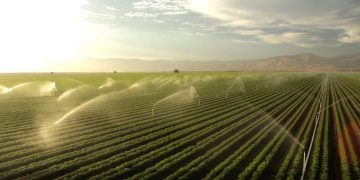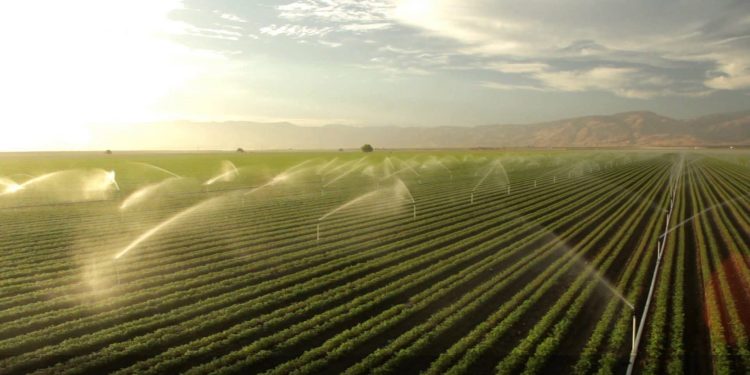#Kazakhstan #Agriculture #IrrigationSystems #WaterScarcity #SustainableFarming #ClimateChange #RECCA #Innovation #FoodSecurity #EnvironmentalConservation
In the arid landscapes of Kazakhstan, where water scarcity threatens the agricultural heartland, a beacon of hope emerges. International organization offers aid to counter water deficit; 40% of water lost in irrigation systems. Discover the game-changing projects reshaping Kazakhstan’s agricultural future.
In recent years, Kazakh farmers have sounded the alarm. Many regions of the country are parched due to prolonged droughts. Rivers are dwindling, and water for essential needs is becoming scarce. The Ministry of Ecology has declared the situation critical. To maintain agricultural productivity, farmers require efficient irrigation systems. However, outdated canals and sluices desperately need renovation. There is a shortage of both equipment and specialists. Experts highlight that early spring sees an influx of water due to glacial melt and snowmelt, but almost half of it is lost to evaporation and filtration. New technologies are imperative to conserve and effectively distribute this precious resource.
Innovative Solutions Offered by RECCA
The Regional Environmental Centre for Central Asia (RECCA), a non-profit international organization founded in 2021 by the governments of five Central Asian countries, the European Union, and UNDP, has stepped in to address this crisis. This year, they initiate two significant water resource management projects in Kazakhstan. The first, the “Integrated Watershed Management in the Ishim River Basin,” will be implemented in Akmolinskaya and North Kazakhstan regions, benefiting around 7500 farms in villages such as Karabulak, Azat, Arnasai, Shortandy, and the city of Stepnogorsk. The project’s cost: $123,000. The second project, “Enhancing Economic Independence and Women’s Empowerment in Rural Areas of Central Asia through Access to Irrigation Water and Infrastructure,” will cover southern regions of Kazakhstan, Kyrgyzstan, and Tajikistan, with a budget of $450,000. These projects, financed through sponsorship, serve as demonstrations of effective solutions. Their goal is to showcase how irrigation problems can be tackled, paving the way for governmental bodies to replicate and expand similar practices on a broader scale. The projects are set to be completed by May 2024.
The Challenge of Irrigated Lands in Kazakhstan
Most of Central Asia faces water scarcity, making agriculture viable only through irrigation, according to RECCA experts. In Kazakhstan, only 7.6% of cultivated lands are irrigated, totaling 2.2 million hectares. To compare, Uzbekistan irrigates 96%, Turkmenistan 90%, Kyrgyzstan 75%, and Tajikistan 73% of their arable lands. Experts predict worsening droughts due to climate change, further diminishing water resources. In this scenario, irrigated agriculture ensures food security, employment, and poverty reduction.
To adapt to changing climate conditions, Kazakhstan must invest in new irrigation systems and technologies that conserve water. Presently, 62% of Kazakhstan’s water sourced from transboundary basins is used for irrigation. The country faces several challenges:
- The average age of inter-farm and on-farm irrigation infrastructure is 50 years, and mainline infrastructure is even older.
- 40% of water is lost in irrigation canals and filtration systems due to seepage through canal bottoms and slopes.
- About 50% of irrigated lands are affected by salinization.
The initiatives undertaken by RECCA herald a new era for Kazakh agriculture. By focusing on sustainable irrigation practices, these projects provide a blueprint for the country’s future. Modernizing irrigation infrastructure, implementing water and soil quality monitoring, and diversifying agricultural structures are vital steps toward ensuring food security, preserving precious water resources, and improving the livelihoods of farmers.
As we look ahead, it is crucial for stakeholders – farmers, agronomists, agricultural engineers, farm owners, and scientists – to support and learn from these endeavors. Through collective effort and innovative solutions, Kazakhstan can overcome its water crisis, transforming its agricultural landscape and ensuring a prosperous future for generations to come.































